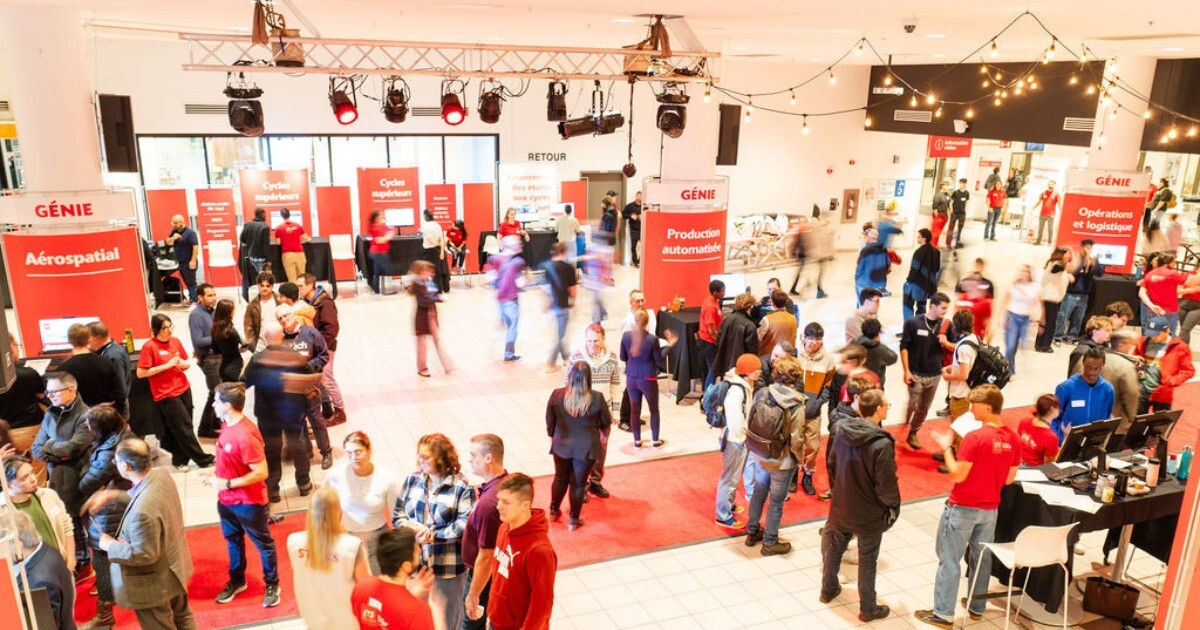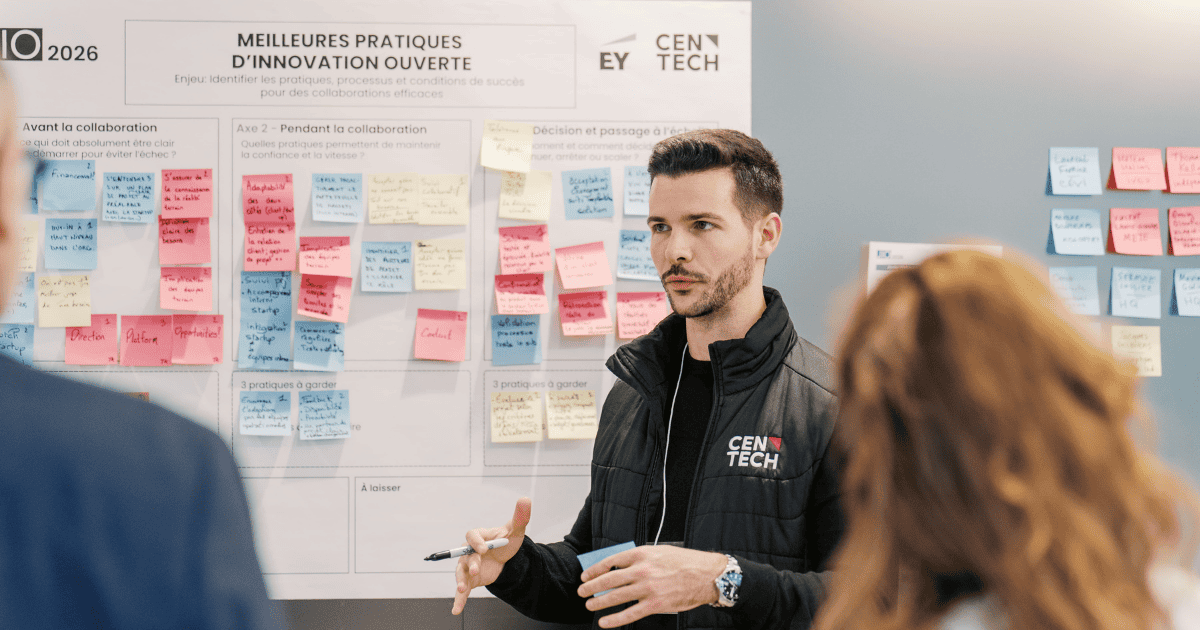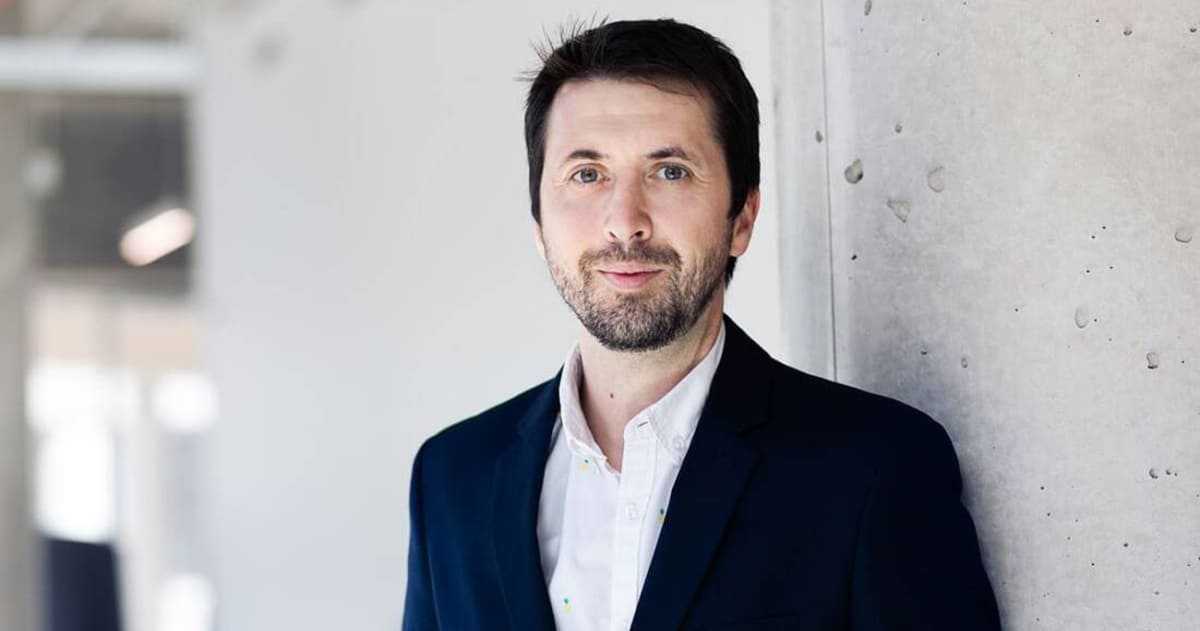
Space exploration is going through a major transformation, while air traffic is growing. It is estimated that the performance gains of new-generation aircraft in terms of fuel economy and noise reduction will not be enough to mitigate their environmental impact. At ÉTS, researchers put their knowledge and expertise at the service of the aerospace and aeronautics industries, whether to improve environmental performance, enhance telecommunications security, reduce noise pollution or push back the limits of space exploration.
Exploring the Lunar Tunnels
Space exploration is rapidly evolving, and one of the major challenges of the coming decades will be the exploration and mapping of lunar tunnels. This is the context in which the ARIES project--for "Autonomous Robotic Intelligent Explorer Sphere"--developed by Professors David St-Onge and Marouf Saad, comes in.


Ensuring Communication Security
Claude Thibeault works in the field of microelectronics. With his research team, he is assessing the resistance of electronic chips to particles released during solar storms. These particles, which cause the formation of the aurora borealis, can affect satellite operations, power transmission networks and aircraft electronics, especially near the Earth’s poles.
Using Robots and Drones to Facilitate Space Exploration
David St-Onge uses swarms of robots and drones to facilitate space exploration and other activities. This type of control is potentially more robust and flexible in mission contingencies and dynamic environments. He is adapting control interaction to the operator’s cognitive load.


Improving Flight Dynamics
Ruxandra Botez‘s research focuses on reducing the environmental impact of aircraft through various strategies. She is carrying out analyses and tests in flight dynamics and controls for aircraft modelling and simulation. She is also aiming to optimize flight trajectories using the Flight Management System (FMS) according to atmospheric conditions, in addition to exploring wing morphing technologies.
Reducing Fuel Consumption and Noise
Georges Ghazi is focusing on the ground traffic of aircraft heading for the runway or terminal. Relying on artificial intelligence and ASD-B data, he aims to guide aircraft along the best path depending on obstacles and other aircraft traffic, a bit like Google Maps does for motorists. His goal is to reduce fuel consumption and noise.


Recycling End-of-Life Structures
Composite materials are increasingly being used in aeronautics because of their high mechanical strength and light weight. However, there are yet no real solutions for disposing of end-of-life structures. In addition to recycling end-of-life structures, Martine Dubé is conducting research focused on recycling production scraps and promoting the use of thermoplastics, a family of materials that is much easier to recycle.
Reducing Aircraft Engine Noise
Marlène Sanjosé studies fluid flows in turbomachinery through simulation and wind tunnel testing. A better understanding of these flows helps to improve turboprop efficiency and reduce noise.


Ensuring Greener Manufacturing Processes
Pierre Bélanger specializes in non-destructive ultrasonic testing. With his team, he has developed a new ultrasonic testing technique that eliminates a costly machining step and reduces the environmental footprint of the fan disk manufacturing process.
Making Aircraft Engines Less Energy-Consuming and More Efficient
François Garnier is working not only on increasing the performance of aircraft engines, but also on making them less polluting. Aircraft engines emit very fine volatile particles that are absorbed by the lungs, causing cancer and other respiratory diseases.


Designing More Aerodynamic Airplanes
Patrick Germain designs new, more aerodynamic aircraft to reduce fuel consumption and greenhouse gas emissions.



